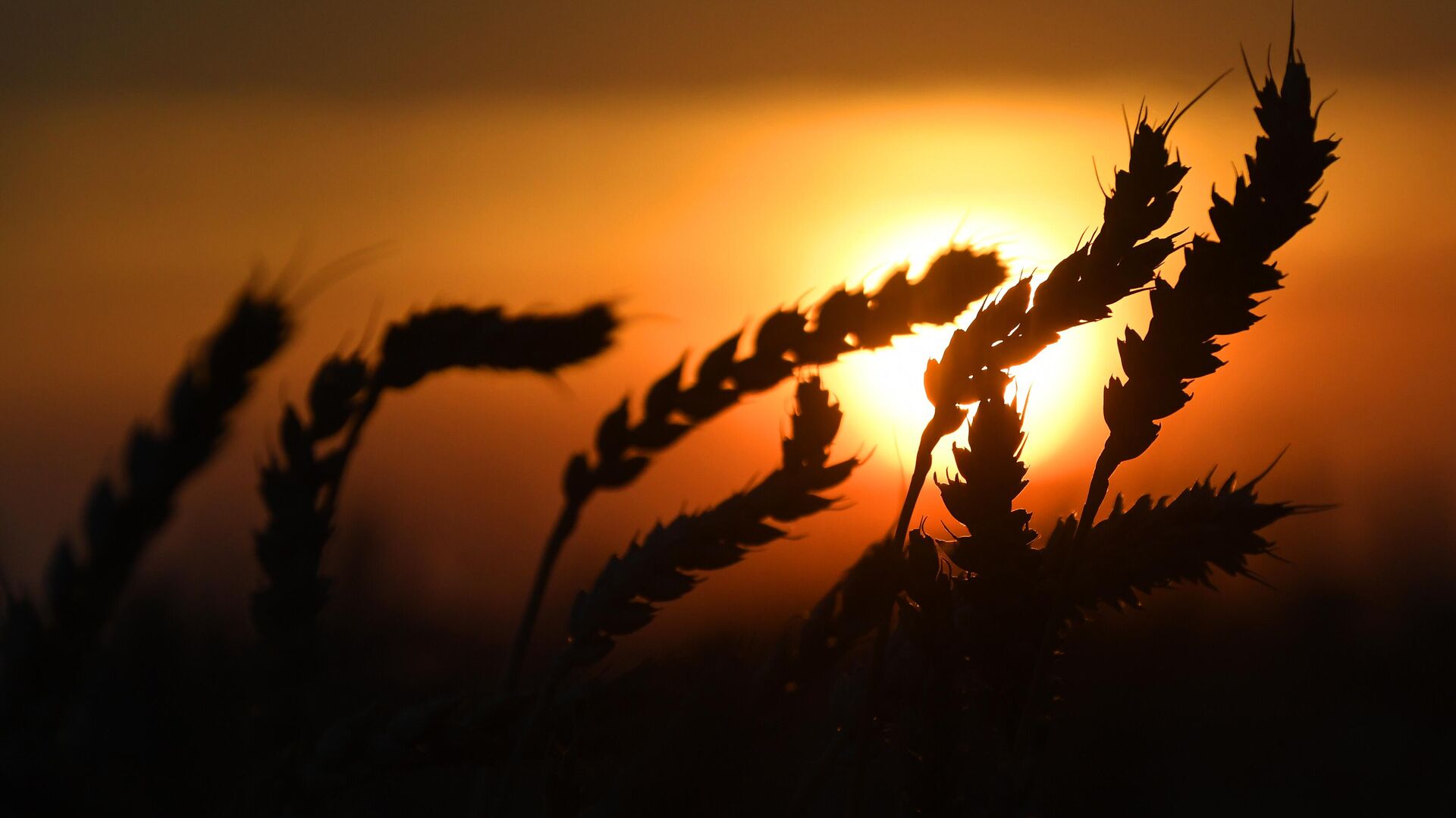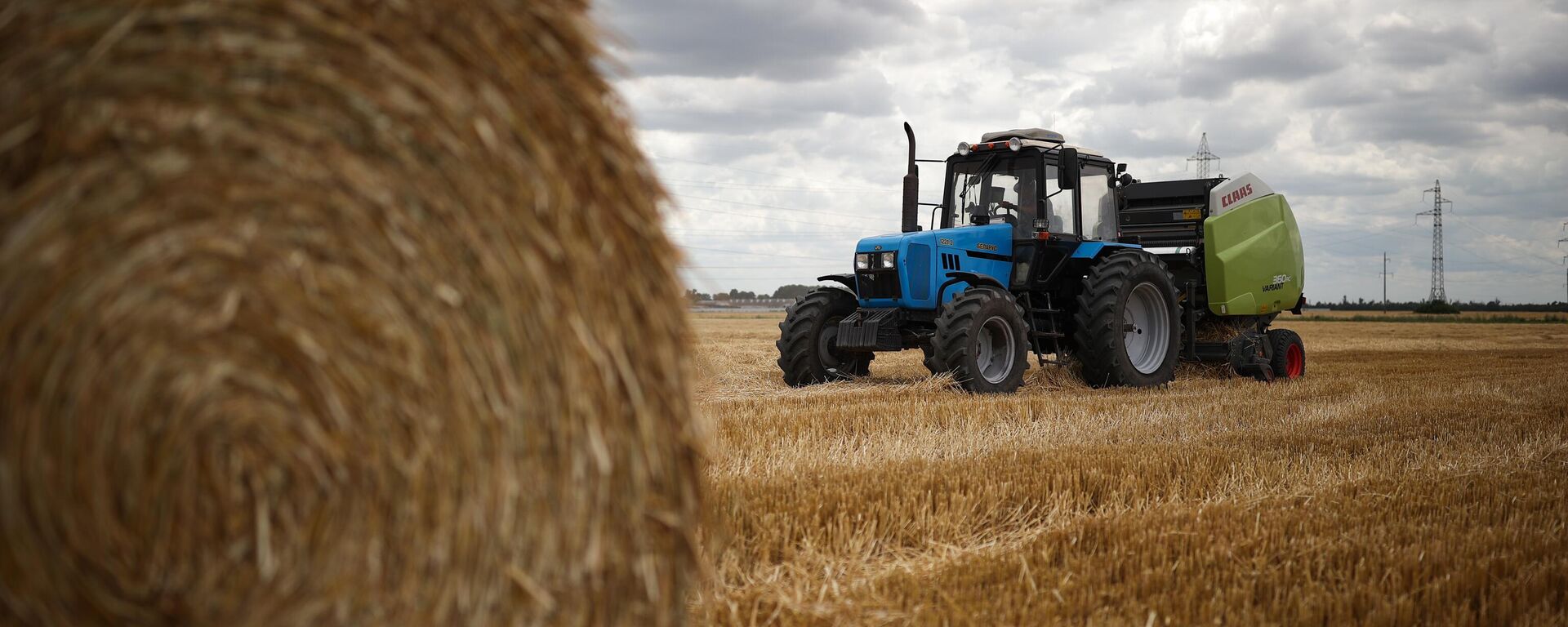https://en.sputniknews.africa/20231209/wests-plan-to-isolate-russia-not-working-expert-on-moscows-grain-supplies-to-africa-1064036930.html
West's Plan to Isolate Russia 'Not Working': Expert on Moscow's Grain Supplies to Africa
West's Plan to Isolate Russia 'Not Working': Expert on Moscow's Grain Supplies to Africa
Sputnik Africa
A ship carrying 25,000 tons of humanitarian wheat from Russia arrived in Somalia last week, and a similar cargo is expected to arrive in Mali and Burkina Faso... 09.12.2023, Sputnik Africa
2023-12-09T14:46+0100
2023-12-09T14:46+0100
2023-12-09T14:50+0100
opinion
africa insight
russia-africa cooperation
vladimir putin
russia
mali
burkina faso
niger
west africa
somalia
https://cdn1.img.sputniknews.africa/img/07e7/08/02/1060995682_0:70:3391:1977_1920x0_80_0_0_72db5a38255d1a3de3986868b40a1baf.jpg
Russia, by meeting the critical needs of friendly countries and maintaining its influence in Africa through grain shipments, demonstrates that the West's approach to isolating Moscow is failing, Dr. Tafadzwa Ruzive, PhD in development finance from South Africa's Nelson Mandela University, told Sputnik Africa.He noted that Russia's contribution to the continent's food security is even more important from the point of view of contributing to political stability, especially for countries like Mali, where Russian grain is expected to arrive soon.Ruzive said that Africa sees the grain shipments in terms of the continuity of relations between the Soviet Union and the continent since the 1970s, which consists of "helping us in critical areas in the development of our strengths."However, the West cannot be satisfied with Moscow's supply of grain and aid to Africa, the analyst said.He argued that Western countries are using Africa as a "bargaining chip" in their relations with Russia, as seen in the grain deal negotiations, where the West played the African famine card to guilt Moscow into closing the Black Sea and forcing it to make concessions in the conflict with Ukraine.The expert went on to say that the West is betting on food insecurity in Africa, hoping for change of power in the continent's nations.Moreover, Western countries impose conditions on the political, cultural, and economic life of nations they help, while Russia "comes with no strings attached and solves a problem that is at the nub of most of the desperate African countries," Ruzive pointed out.The financial expert also commented on the development of Russia's relations with Niger, Mali and Burkina Faso the supply of energy, fertilizers and petroleum products, saying that such negotiations are positive for Africa on many levels. This policy circumvents Western currency systems, Western SWIFT system and provides financing and exchange, Ruzive explained.In July, Putin announced Moscow's commitment to deliver grain as humanitarian aid to six African countries on the World Food Program's list. The first Russian ships carrying 25,000 tons of wheat left for Somalia and Burkina Faso on November 17, Russian Minister of Agriculture Dmitry Patrushev said, adding that up to 200,000 tons of Russian wheat would be delivered to Africa free of charge by the end of the year.Putin said the initiative came in response to mounting threats to the world food supplies caused by Russia's withdrawal from the Black Sea Grain Initiative, an agreement that allowed Ukraine to export grain from its Black Sea ports amid the ongoing Russia-Ukraine conflict. Russia withdrew from the agreement in July, accusing the West of failing to live up to its commitments.
https://en.sputniknews.africa/20231203/russia-building-on-soviet-legacy-by-supplying-africa-with-grain-nigerian-expert-says-1063924583.html
https://en.sputniknews.africa/20231203/how-russias-grain-supply-to-african-countries-differs-from-western-aid-1063923217.html
russia
mali
burkina faso
niger
west africa
somalia
east africa
west
Sputnik Africa
feedback@sputniknews.com
+74956456601
MIA „Rossiya Segodnya“
2023
Maxim Grishenkin
https://cdn1.img.sputniknews.africa/img/07e7/0a/17/1063018107_0:0:1104:1103_100x100_80_0_0_03090c85a11f5d2e8a19cf1d989443c9.jpg
Maxim Grishenkin
https://cdn1.img.sputniknews.africa/img/07e7/0a/17/1063018107_0:0:1104:1103_100x100_80_0_0_03090c85a11f5d2e8a19cf1d989443c9.jpg
News
en_EN
Sputnik Africa
feedback@sputniknews.com
+74956456601
MIA „Rossiya Segodnya“
Sputnik Africa
feedback@sputniknews.com
+74956456601
MIA „Rossiya Segodnya“
Maxim Grishenkin
https://cdn1.img.sputniknews.africa/img/07e7/0a/17/1063018107_0:0:1104:1103_100x100_80_0_0_03090c85a11f5d2e8a19cf1d989443c9.jpg
africa insight, russia-africa cooperation, vladimir putin, russia, mali, burkina faso, niger, west africa, somalia, east africa, grain, grain deal, black sea grain initiative, humanitarian aid , west
africa insight, russia-africa cooperation, vladimir putin, russia, mali, burkina faso, niger, west africa, somalia, east africa, grain, grain deal, black sea grain initiative, humanitarian aid , west
West's Plan to Isolate Russia 'Not Working': Expert on Moscow's Grain Supplies to Africa
14:46 09.12.2023 (Updated: 14:50 09.12.2023) A ship carrying 25,000 tons of humanitarian wheat from Russia arrived in Somalia last week, and a similar cargo is expected to arrive in Mali and Burkina Faso soon. Russian President Vladimir Putin has also promised to send free grain to Zimbabwe, the Central African Republic and Eritrea.
Russia, by meeting the critical needs of friendly countries and maintaining its influence in Africa through grain shipments, demonstrates that the West's approach to isolating Moscow is failing, Dr. Tafadzwa Ruzive, PhD in development finance from South Africa's Nelson Mandela University, told Sputnik Africa.
"As Russia continues to be a reliable partner now even in economic aid, the old friends are coming back and Russia is actually coming out of isolation or not isolated because of the friends that it has all over the world," Ruzive pointed out. "Russia showing that it has friends around the world shows that the isolationist approach the West is using is falling by the wayside. It's not working."
He noted that Russia's contribution to the continent's food security is even more important from the point of view of contributing to political stability, especially for countries like Mali, where Russian grain is expected to arrive soon.
"We are happy with how Russia is anchoring political stability on the African continent through addressing vulnerabilities such as food insecurity, especially in countries like Mali. We are happy that Russia is not only providing food to people, it's providing an anchor for political stability in West Africa through this grain contribution," the expert explained.
Ruzive said that Africa sees the grain shipments in terms of the continuity of relations between the Soviet Union and the continent since the 1970s, which consists of "helping us in critical areas in the development of our strengths."
However, the West cannot be satisfied with Moscow's
supply of grain and aid to Africa, the analyst said.
He argued that Western countries are using Africa as a "bargaining chip" in their relations with Russia, as seen in the grain deal negotiations, where the West played the African famine card to guilt Moscow into closing the Black Sea and forcing it to make concessions in the conflict with Ukraine.
However, by shipping grain outside the Black Sea Initiative, Russia has "neutralized that bargaining chip on the part of the West with respect to arm twisting Russia," Ruzive added.
The expert went on to say that the West is betting on food insecurity in
Africa, hoping for change of power in the continent's nations.
"What you can deduce from the Grain Deal negotiations and the sanctions on Russia is that the West relies on food insecurity, causing political instability in African countries to establish a regime change on the African continent," he remarked, adding that "you cannot use Africa's vulnerability to try and settle political scores in other parts of the world."
Moreover, Western countries impose conditions on the political, cultural, and economic life of nations they help, while Russia "comes with no strings attached and solves a problem that is at the nub of most of the desperate African countries," Ruzive pointed out.
"So Russia's approach in delivering grain is a superior approach to what the West does when it gives aid with strings attached, whereas Russia is actually first fixing the vulnerabilities that an African state could have," he stressed.
The financial expert also commented on the development of Russia's relations with Niger, Mali and Burkina Faso the supply of energy, fertilizers and petroleum products, saying that such negotiations are positive for Africa on many levels. This policy circumvents Western currency systems, Western SWIFT system and provides financing and exchange, Ruzive explained.
In July, Putin announced Moscow's commitment to
deliver grain as humanitarian aid to six African countries on the World Food Program's list.
The first Russian ships carrying 25,000 tons of wheat left for Somalia and Burkina Faso on November 17, Russian Minister of Agriculture Dmitry Patrushev said, adding that up to 200,000 tons of Russian wheat would be delivered to Africa free of charge by the end of the year.
Putin said the initiative came in response to mounting threats to the world food supplies caused by Russia's withdrawal from the Black Sea Grain Initiative, an agreement that allowed Ukraine to export grain from its Black Sea ports amid the ongoing Russia-Ukraine conflict. Russia withdrew from the agreement in July, accusing the West of failing to live up to its commitments.




